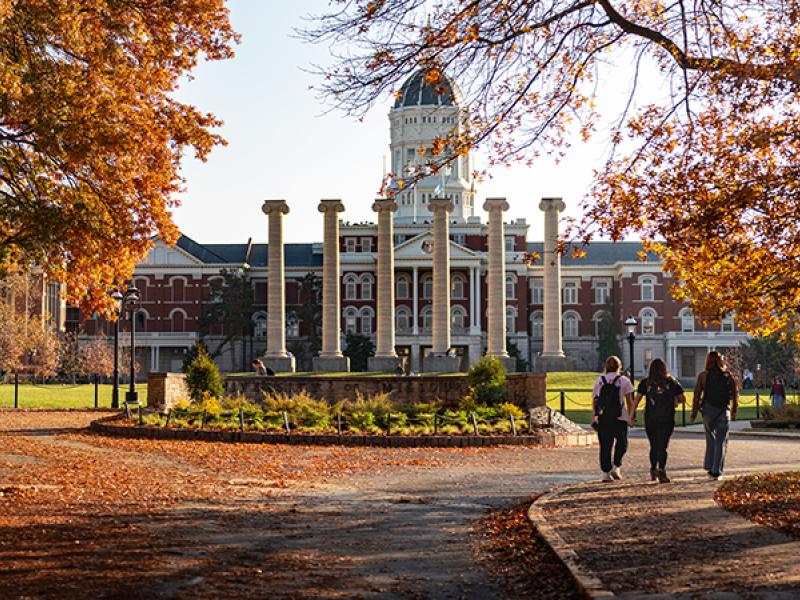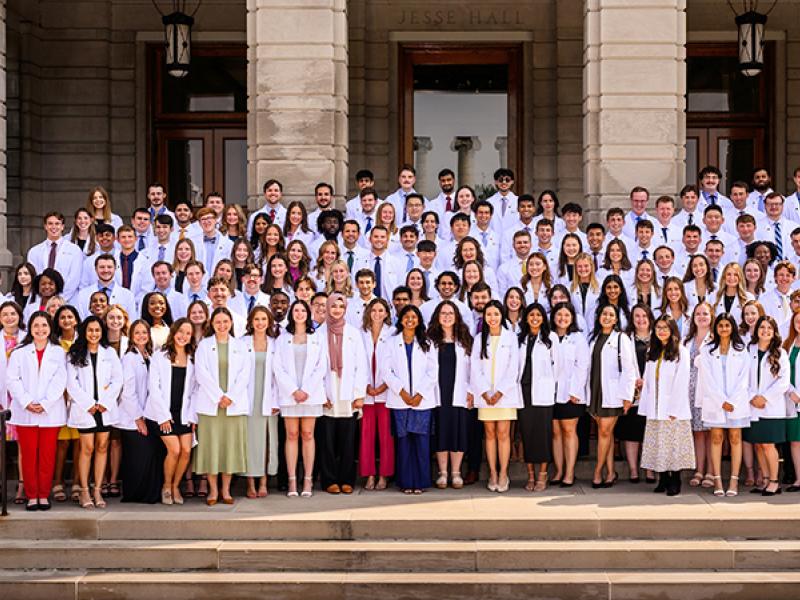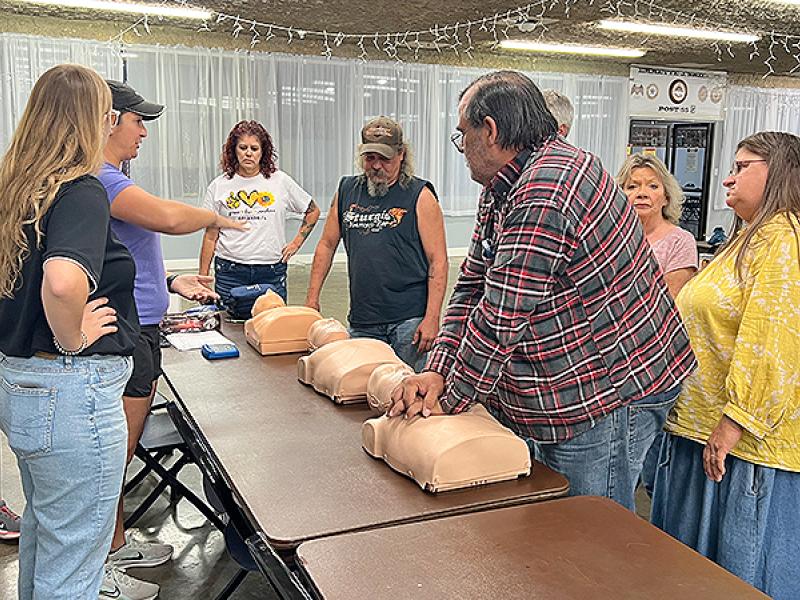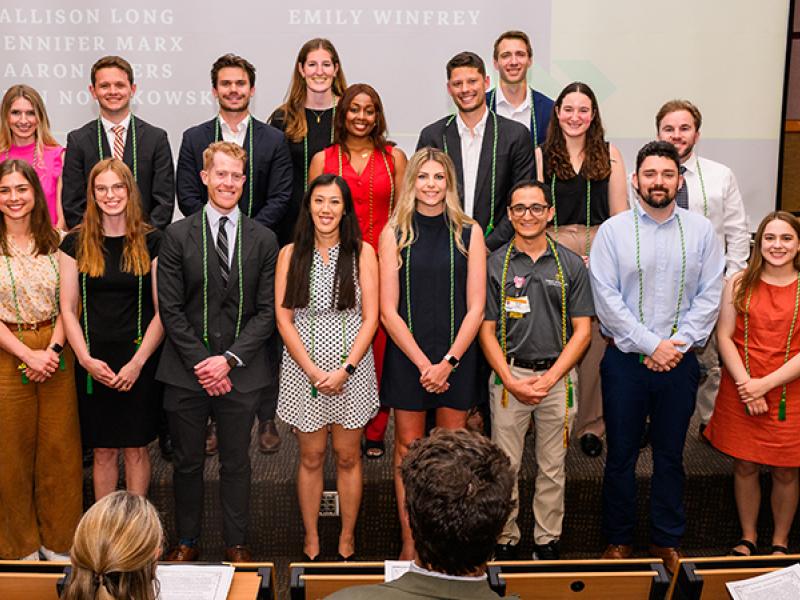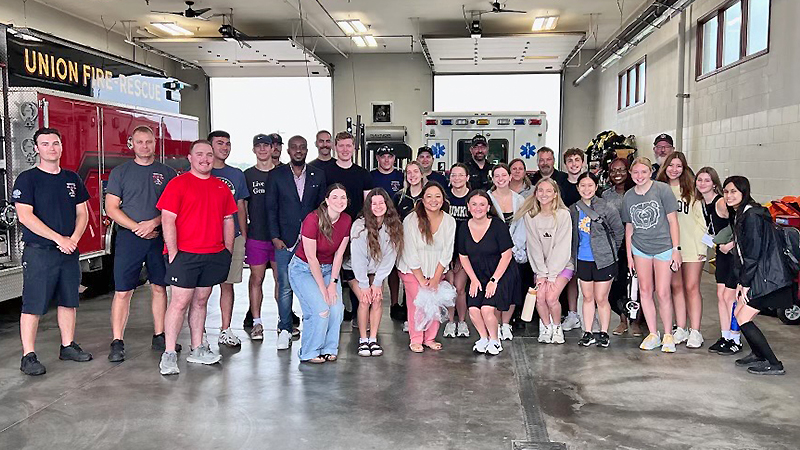
From June 23-27, nine students across the UM system and 19 students in total from Missouri institutions, trekked to Union for the latest Rural Immersion program. MU’s Rural Immersion initiative is a collaborative effort between MU Extension, the MU School of Medicine and the host city’s leadership. The goal of the program is to give health professional students the opportunity to envision whether living and working in a rural community might be right for them.
Five School of Medicine representatives and students with various disciplines such as dental, dietetics, pre-optometry and physical therapy, were able to gain hands-on experience in the field of rural health.
Located 50 miles southwest of St. Louis, the city of Union and its population of 12,000 offered a comprehensive rural community experience. Elizabeth Page Hammer, MD, from Mercy Hospital served as the keynote speaker to open the weeklong program, touching on the importance of rural health care providers and the roles they carry in the community beyond being a physician.
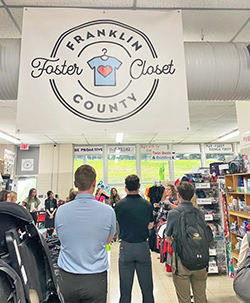
Over the course of the week, students toured local healthcare facilities, and attended presentations and panel discussions featuring local healthcare providers, government officials and community leaders. Interactive topics of discussion included community crisis management, factors that impact the health of rural populations, and initiatives to address rural health disparities.
While educational opportunities were the focal point of the week, students also had the ability to explore the city and gain a better feel of what a rural community offers outside the workplace. Following morning and afternoon professional development, evening activities included trips to the Union Historical Society, Meramec Caverns and the downtown strip.
Two first year MU School of Medicine students, set to begin in Fall 2024, Gillian Hark and Cole Yager, attended the recent Rural Immersion trip to Union. They are also members of The Lester R. Braynt Scholars Pre-Admissions Program, which encourages prospective students from rural backgrounds to pursue a medical education.
For Hark and many of her peers, the ability to meet and hear from local healthcare and business leaders was an invaluable experience.
“We were able to talk to administrators and staff from the local Mercy Hospital about the various resources and services available in Franklin County to combat some of the issues that have been impacting their community the most,” said Hark. “It was great to not only learn about their healthcare system, but also how their programs are integrated into the county's education system and businesses.”
As Yager and the rest of the Rural Immersion participants explored the community, there were exciting and interesting takeaways each day.
“I applied to this program to learn more about rural areas and become more familiar with them,” said Yager. “Throughout the week in Union, all of the healthcare workers and business leaders we met were so easy to talk to and you could see the appreciation for their local community. Overall, this was an incredible experience and I’m so fortunate that MU provides real-life opportunities like this.”
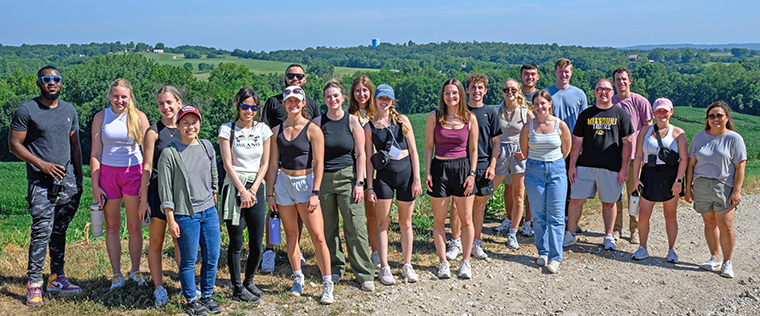
Another Rural Immersion attendee, Corder Lehenbauer, is set to achieve his bachelor’s degree from MU in December 2024 and begin his pursuit of a medical degree in Fall 2025. The ability to travel to a local rural community and see firsthand what a career in rural healthcare could be like is something he couldn’t pass up.
“This opportunity showed each of us all of the aspects of a thriving rural community, including healthcare facilities, businesses, history and governance, said Lehenbauer. “A line I took away from our guest speakers and panel discussions was, ‘the growth and survival of a rural community is only as good as the health of its people’ and that was something I observed throughout our trip. It would be a privilege one day to work in a rural community, and this opportunity was truly a fruitful experience.”


